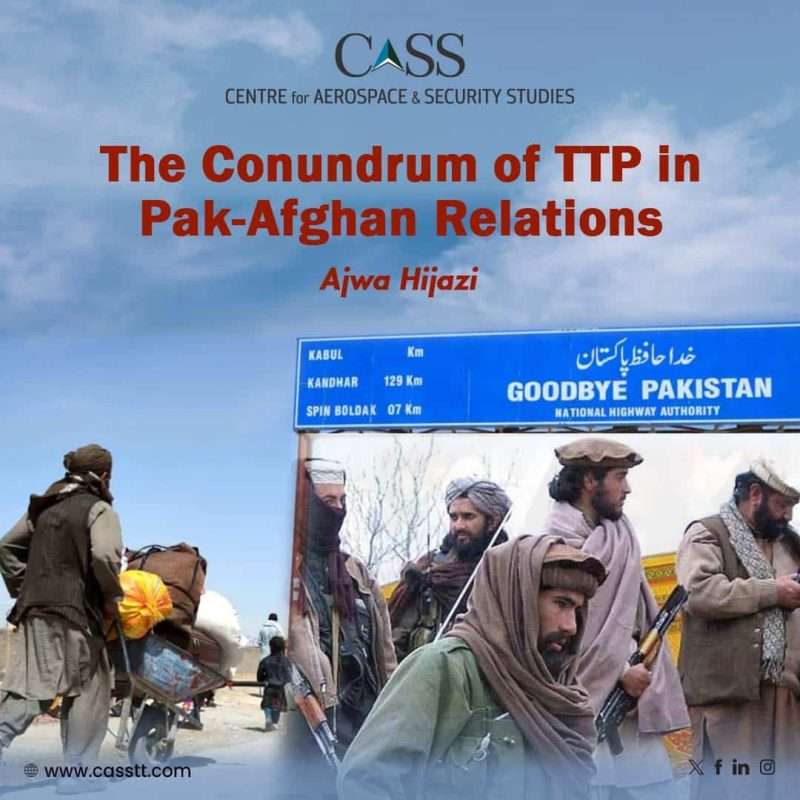Over several decades, Pak-Afghan relations have been characterised by phases of turbulence and stability. The current phase of bilateral relations is also marked by relative friction between the two neighbours. The primary reason for the strained relationship is Pakistan’s concern about either the inability or lack of will by the interim Afghan government to rein in Tehreek-e-Taliban Pakistan (TTP). Although the Afghan interim government has continuously stated that it would not allow its soil to be used for any terror activities, certain elements in the Taliban government have extended support towards the banned terrorist outfit (TTP) and its various affiliates. Relations reached a crisis point after Pakistan’s intelligence-based anti-terror operation in the border region of Afghanistan in the early hours of 18th March two days after the terrorist attack in Mir Ali, North Waziristan, in which seven Pakistani soldiers were martyred, including two officers.
This kinetic measure was taken amidst brewing tensions between the two countries over several months. There have been repeated instances of Islamabad conveying to the Afghan Taliban the severity of terrorism emanating mainly from TTP and other related banned outfits that enjoy considerable liberty to operate from Afghanistan.
Since the Afghan Taliban assumed power in Kabul in 2021 (after the United States withdrawal), Pakistan has witnessed an emboldened posture of TTP, manifested through the upsurge in militant attacks. According to the Pakistan Institute for Conflict and Security Studies (PICSS), in 2023 alone, around 645 militant attacks occurred in Pakistan, causing the deaths of over 938 people. Another report by Pakistan Institute of Peace Studies (PIPS) states, 78 percent of attacks have been carried out by TTP, which also accounted for 82 percent of the casualties. Moreover, 2023 was also marked as deadliest year in a decade for the military and police force, where they collectively sacrificed more than 500 personnel. Around 93 percent of the attacks have occurred in Khyber Pakhtunkhwa (KPK) and Balochistan – provinces bordering Afghanistan.
According to Pakistani officials, certain elements of the ruling Afghan Taliban are patronizing the TTP. It has led to TTP carrying out cross-border terrorist attacks from sanctuaries in Afghanistan. As the militant attacks ramped up, Pakistan repeatedly engaged the Afghan interim government (through diplomatic channels, intelligence sharing, and international security platforms) and asked them to take effective and concrete action against TTP. Still, there has been no decisive action from them to halt the conducive environment provided to the TTP and its affiliates.
Continued inaction of the Afghan Taliban against TTP’s presence on their soil made Pakistan run out of patience. Amidst the soaring human cost (both civilian and military) and continuous attacks on its infrastructure, Pakistan was compelled to show its ability and resolve to retaliate by striking terrorist sanctuaries in Afghanistan. In response, the interim Afghan government has recorded its protests and hinted at dire consequences to their bilateral relations.
Tensions between the two states immediately affect cross-border trade due to the closure of the Torkham and Chamman border crossings. Amid the recent tensions, Pakistan’s Ministry of Commerce delegation visited Afghanistan on 25th March to discuss matters related to enhancing trade relations. However, given the series of recent events, continuity of any confidence-building measure between the two sides would largely depend on the extent of willingness of Afghan Taliban to go after TTP on their soil.
There is no denying that Pakistan is facing the heat of terrorism, mainly due to its proliferation from across the border. However, according to many analysts, Pakistan’s counter-terrorism strategy against TTP cannot solely rely on the presumed assistance of the Afghan Taliban to counter this threat. Pakistan would have to chalk out a more adequate course of action against TTP. The banned outfit has adopted a new ‘localised strategy’ focusing on the series of mergers and its enhanced operational skills. In this context, Pakistan needs to devise a more robust internal security mechanism that should place ‘timely and accurate Intel’ at its core. However, to garner sustainable results, Pakistan’s measures must be complemented by halting of TTP’s freedom in Afghanistan. For that, the Afghan interim government needs to be convinced that, given the gravity of the issue, its current policy of patronization towards TTP should be ceased. Moreover, the constant reluctance of Afghan Taliban to take decisive action against TTP is also hampering their quest for international recognition (since one of the significant global conditions is to not let their soil be used against any other state) apart from adversely affecting their relations with their neighbour.
While the current relations between Afghanistan and Pakistan are replete with contentions, a mature and pragmatic approach is a need of the hour. It is of paramount importance that seasoned political leaders, and relevant stakeholders from both sides of the border, should play their role in curtailing the prevalent trust deficit between the two countries. Active diplomacy, including communication and engagement between Islamabad and Kabul, on the issue of countering terrorism should continue. Failure to jointly combat TTP would, unfortunately, make the whole region vulnerable to the menace of terrorism.
Ajwa Hijazi is a Research Assistant at the Centre for Aerospace & Security Studies (CASS), Islamabad, Pakistan. She can be reached at cass.thinkers@casstt.com.




